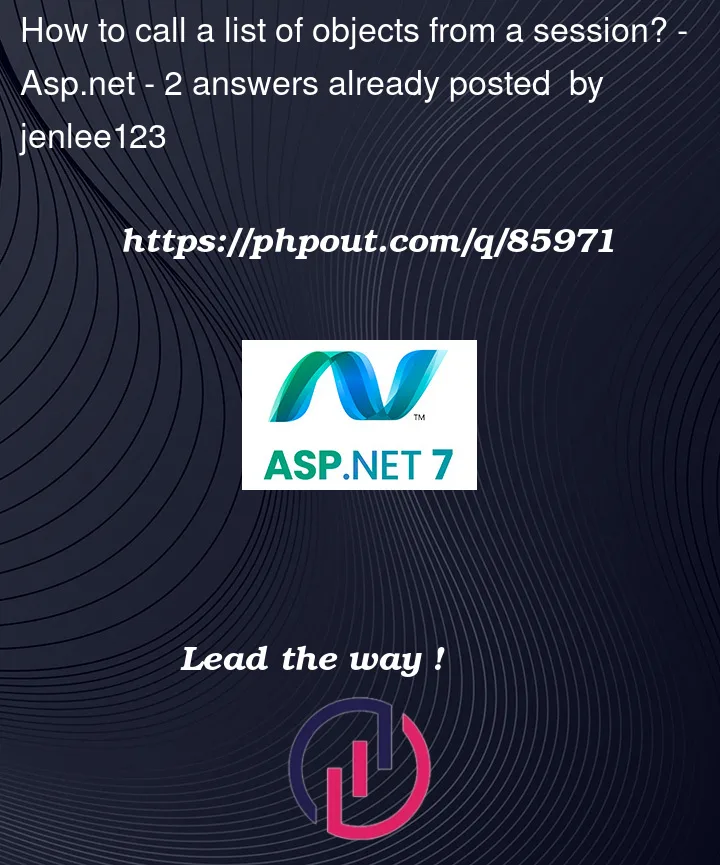I am creating an invoice like this:
For signed in users, I save the invoices and the invoice units to database (one invoice has many invoice units) and for users that are not signed in, I am trying to save the data into sessions
[HttpPost]
public ActionResult Create(Invoice invoice)
{
var userId = User.Claims.FirstOrDefault(c => c.Type == "UserId")?.Value;
if (userId is not null)
{
invoice.UserId = Guid.Parse(userId.ToString());
DateTime dateTime = DateTime.Now;
invoice.DateCreated = dateTime;
foreach (var invoiceUnit in invoice.InvoiceUnits)
{
db.InvoiceUnits.Add(invoiceUnit);
}
db.Add(invoice);
db.SaveChanges();
return RedirectToAction("Index");
}
else
{
invoice.Id = Guid.NewGuid();
var invoicesFromSession = GetInvoicesFromSession();
var invoiceUnitsFromSession = GetInvoiceUnitsFromSession();
DateTime dateTime = DateTime.Now;
invoice.DateCreated = dateTime;
if (invoice is not null)
{
invoicesFromSession.Add(invoice);
HttpContext.Session.SetString("invoice", JsonSerializer.Serialize(invoicesFromSession));
foreach(var invoiceUnit in invoice.InvoiceUnits)
{
invoiceUnit.Id = new Guid();
invoiceUnit.InvoiceId = invoice.Id;
HttpContext.Session.SetString("invoiceUnit", JsonSerializer.Serialize(invoiceUnitsFromSession));
invoiceUnitsFromSession.Add(invoiceUnit);
}
}
return RedirectToAction("Index");
}
}
I am getting the invoice units from session like this:
private List<InvoiceUnit> GetInvoiceUnitsFromSession()
{
HttpContext.Session.LoadAsync();
var sessionString = HttpContext.Session.GetString("invoiceUnit");
if (sessionString is not null)
{
return JsonSerializer.Deserialize<List<InvoiceUnit>>(sessionString);
}
return Enumerable.Empty<InvoiceUnit>().ToList();
}
And then I am trying to call the function in the Edit controller
var sessionInvoices = GetInvoicesFromSession();
var sessionInvoiceUnits = GetInvoiceUnitsFromSession();
var invoiceFromDbSession = sessionInvoices.FirstOrDefault(i => i.Id == id);
List<InvoiceUnit> invoiceUnitsForInvoiceSession = new List<InvoiceUnit>();
foreach (var invoiceUnit in sessionInvoiceUnits)
{
if (invoiceUnit.InvoiceId == id)
{
invoiceUnitsForInvoiceSession.Add(invoiceUnit);
}
}
GenericModel sessionData = new GenericModel(invoiceUnitsForInvoiceSession, invoiceFromDbSession);
return View(sessionData);
From some reason tho, when I call the GetInvoiceUnitsFromSession(); in the Edit controller to retrieve the wanted invoice unit for the specific invoice, I only receive one invoice unit for each invoice (the first one I have entered). When I debug the invoiceUnitsFromSession variable in the create function, the number of units fits just fine for the specific invoice so I think there must be some problem in the way I am trying to retreive the session. Any idea what changes to make in order to retreive all of the invoice units I recieve for all invoices so I can get them in Edit controller?




2
Answers
Do you want the below way?
Configure your SessionExtension like below:
Then use methods like below:
Read Set and get Session values to know more.
The issue you see comes from this block:
Here you’re writing the value for the key
invoiceUniton each repetition of the loop before you actually update the value, so at least the last line will always be missing. You would want to either change the order:or move the line that stores invoice units into the session out of the loop completely to avoid unnecessary repetition: